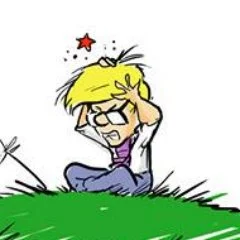

Yeah, because there hasn’t been anything since then, right?
https://www.yahoo.com/lifestyle/youtube-star-apologizes-controversial-video-220742348.html
Or does the counter automatically get reset every time there’s another apology video? There have been so many, after all.
The lengths some of you all go to in order to defend a racist, Nazi-cosplaying edgelord who makes fun of people with disabilities is a little insane.
Like all of his fanboys, you first attempted to minimize his history by saying it was all about him saying the “N” word. When I said it was actually more than that and provided info about the most egregious example, you said “oh, that was so long ago!”. I provide info on another incident from 3 years ago, and you’re complaining about how I’m trying to castrate the guy.
If you don’t like factual statements about his history of behavior and the obvious patterns, maybe don’t idolize an asshole? But don’t come into public spaces and try and sell it as “Oh, he just said a naughty word once. Isn’t weird how upset people were about that? He was young/it was a long time ago/he’s changed now.”